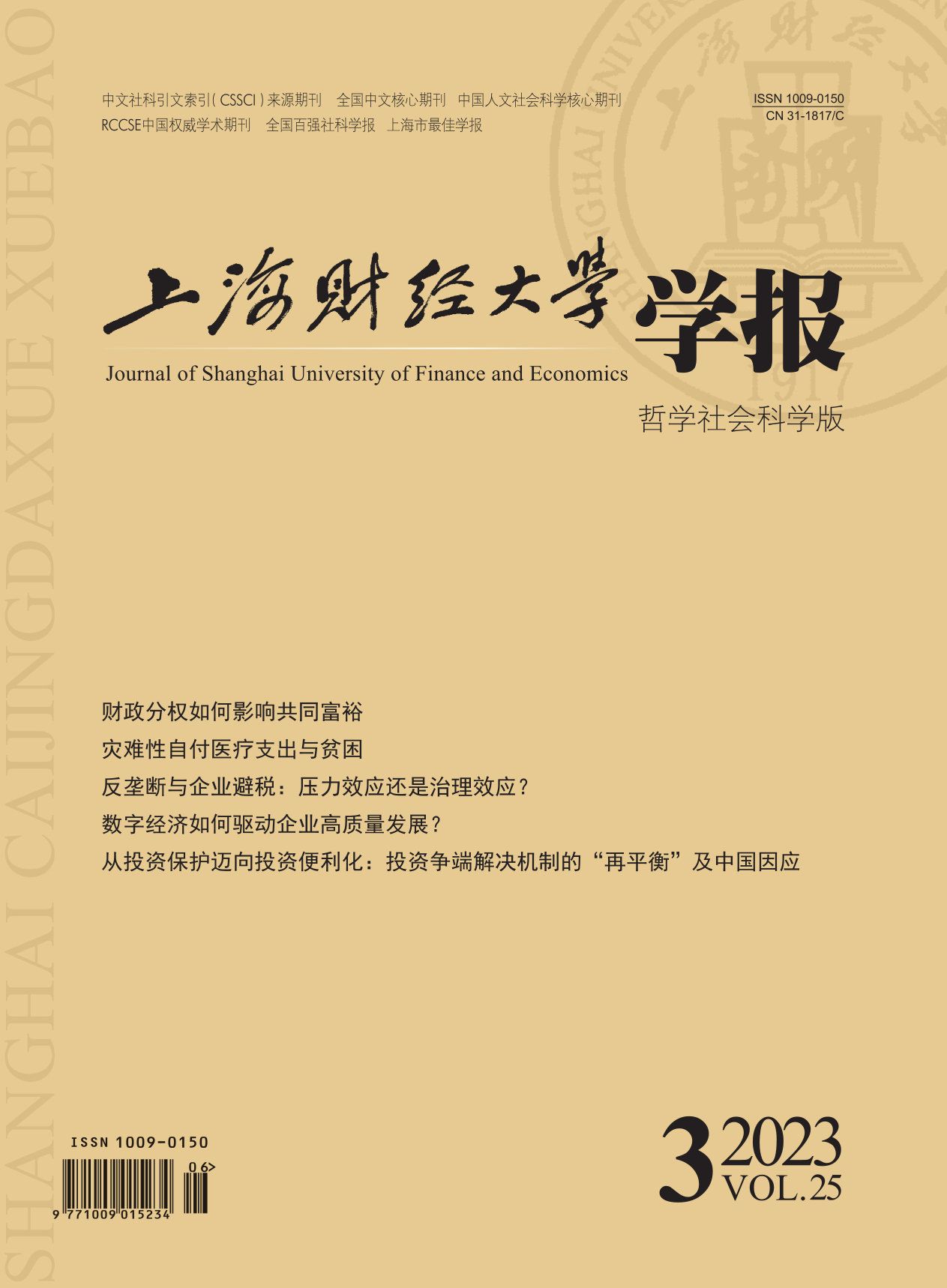Achieving common prosperity is a long-term goal of promoting new urbanization development “centered on the people”. As an important carrier of information technology that drives high-quality economic development, promotes social progress and changes people’s daily lives, how does the development of the Internet affect the achievement of common prosperity for households? Existing research has mainly focused on analyzing the new changes in labor forms and production processes in the digital age of the Internet from a theoretical level, as well as its impact on balanced growth and wealth inequality. In order to more comprehensively understand the practical path of technological revolution to promote common prosperity, this paper empirically examines the impact of Internet development on households’ achievement of common prosperity and its internal transmission mechanism by matching China Household Finance Survey (CHFS) data with urban macro data. The results show that: First, the development of the Internet helps to promote the achievement of common prosperity for households, and the improvement of employment quality is the transmission mechanism for this effect. This conclusion expands the existing research on the economic and social effects of technological revolutions, and provides a feasible reference path for vulnerable groups to grasp the positive role of technological innovation dividends in achieving common prosperity. Second, the heterogeneity analysis of the impact of Internet development on households’ achievement of common prosperity shows that the promotion effect of Internet development on achieving common prosperity is more significant for rural-registered, low-educated or non-regular employed groups. This further verifies the positive role of Internet development in achieving common prosperity, and has important policy implications for how the new round of technological revolution can promote common prosperity. That is,we should strengthen the promotion and application of the Internet for vulnerable groups, thereby strengthening its positive role in employment demand and income increase, and improving income distribution. Third, from a further analysis of structural features, the development of the Internet has a positive effect on material prosperity and social sharing, but no significant impact on spiritual prosperity due to the failure of the working class identification to improve. The policy implication is that, by improving the social security and rights protection issues of Internet-related professional groups, their spiritual well-being can be enhanced, and the positive role of the Internet in achieving common prosperity can be better played.
 / Journals / Journal of Shanghai University of Finance and Economics
/ Journals / Journal of Shanghai University of Finance and EconomicsJournal of Shanghai University of Finance and Economics
LiuYuanchun, Editor-in-Chief
ZhengChunrong, Vice Executive Editor-in-Chief
GuoChanglin YanJinqiang WangWenbin WuWenfang, Vice Editor-in-Chief
Internet Development, Employment Quality Improvement and Common Prosperity: Effect Identification and Empirical Evidence
Journal of Shanghai University of Finance and Economics Vol. 25, Issue 03, pp. 18 - 32 (2023) DOI:10.16538/j.cnki.jsufe.2023.03.002
Summary
References
Summary
Cite this article
Shi Wei, Wang Shiyong, Wang Hongwei. Internet Development, Employment Quality Improvement and Common Prosperity: Effect Identification and Empirical Evidence[J]. Journal of Shanghai University of Finance and Economics, 2023, 25(3): 18-32.
Export Citations as:
For
ISSUE COVER
RELATED ARTICLES




 6931
6931  6970
6970

